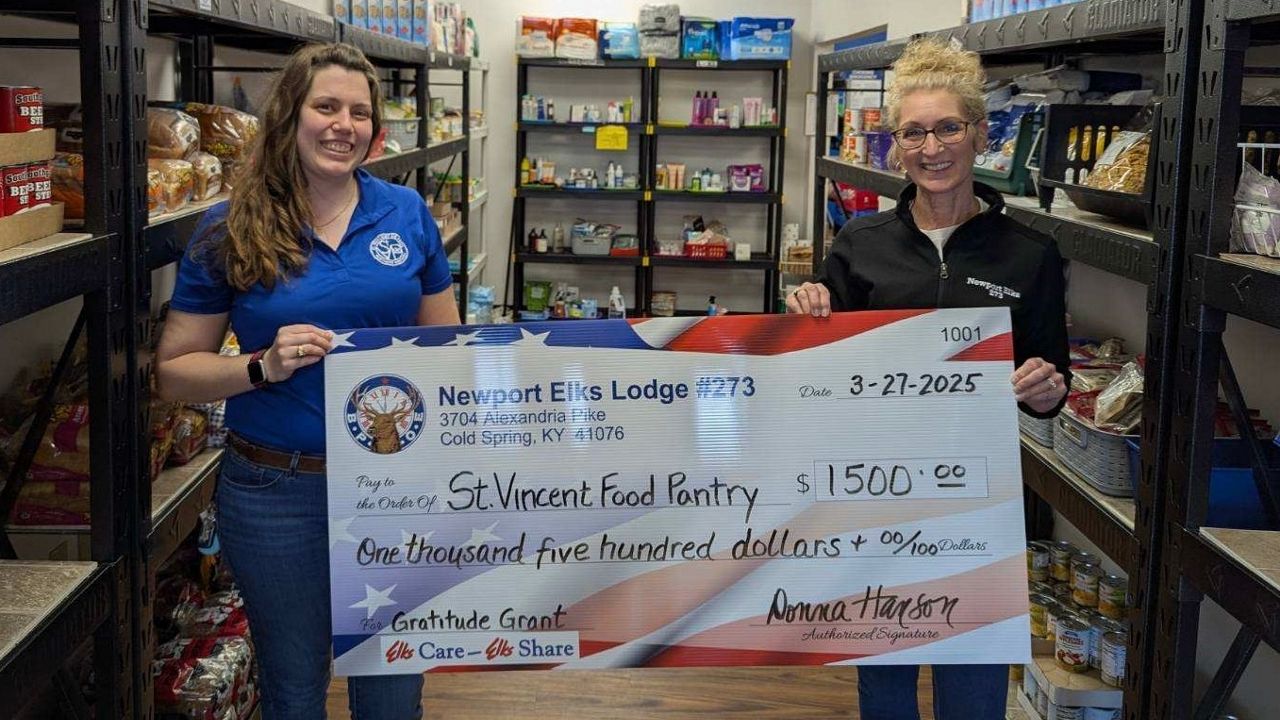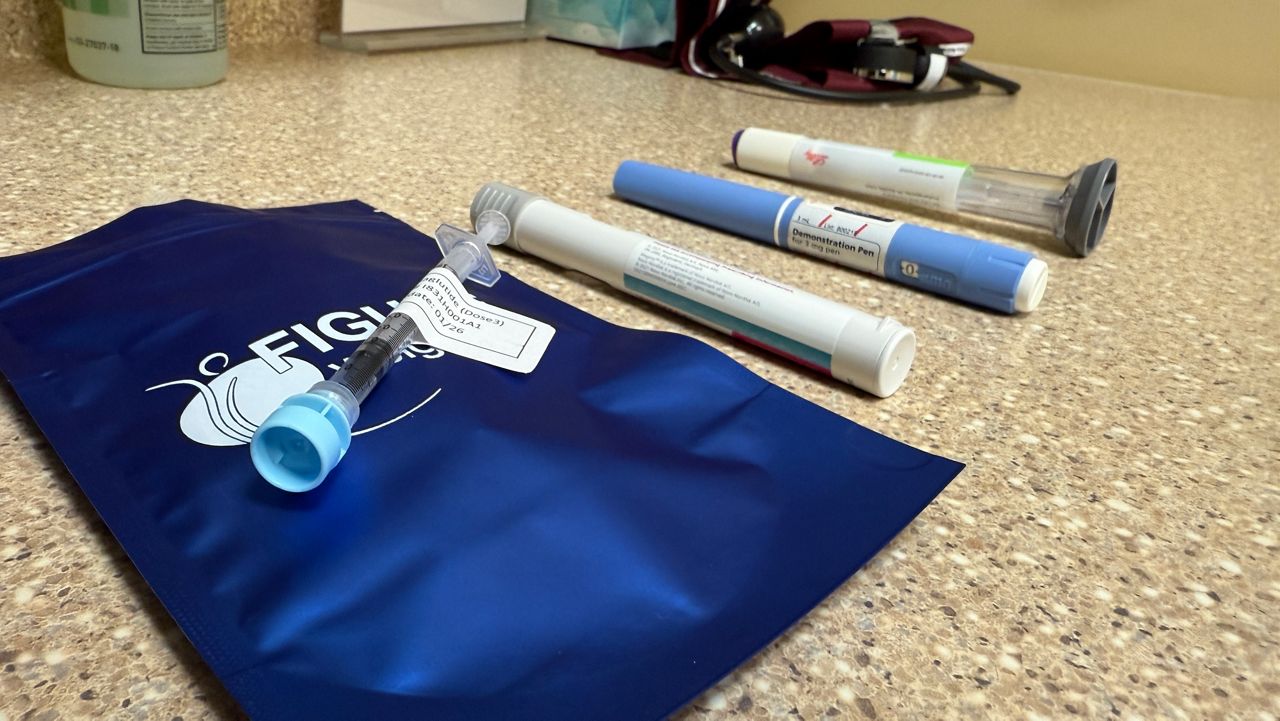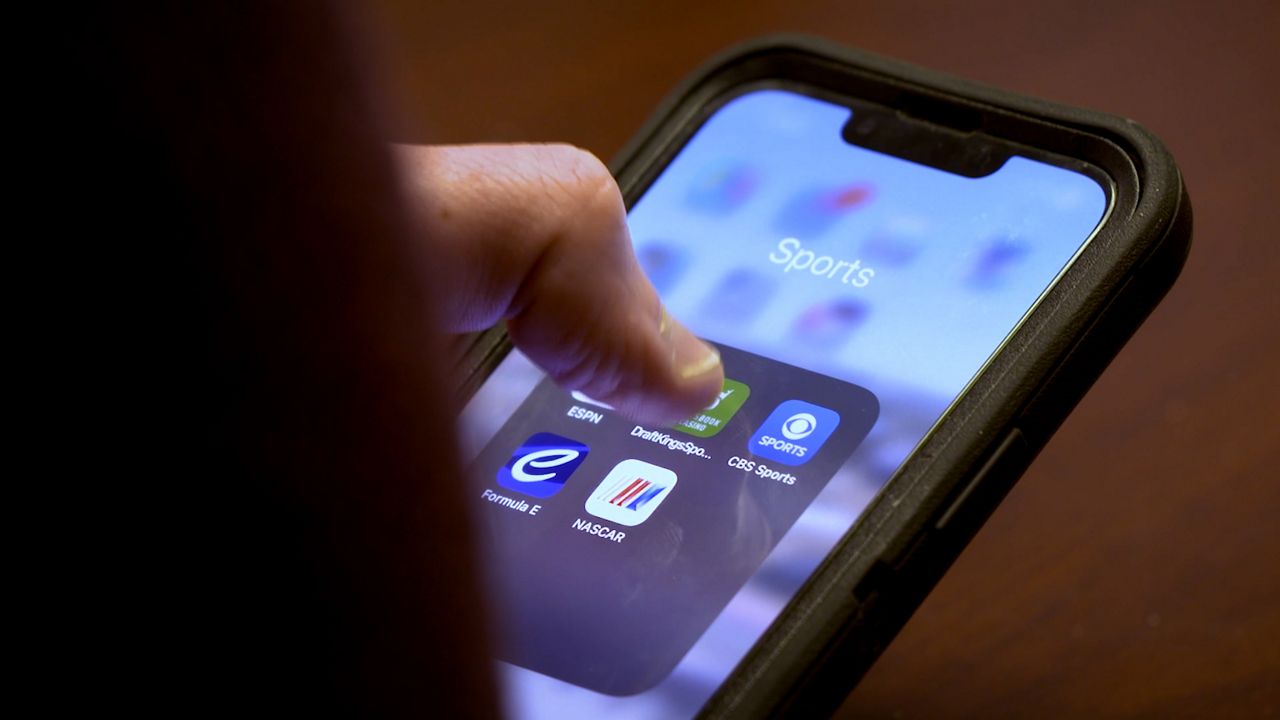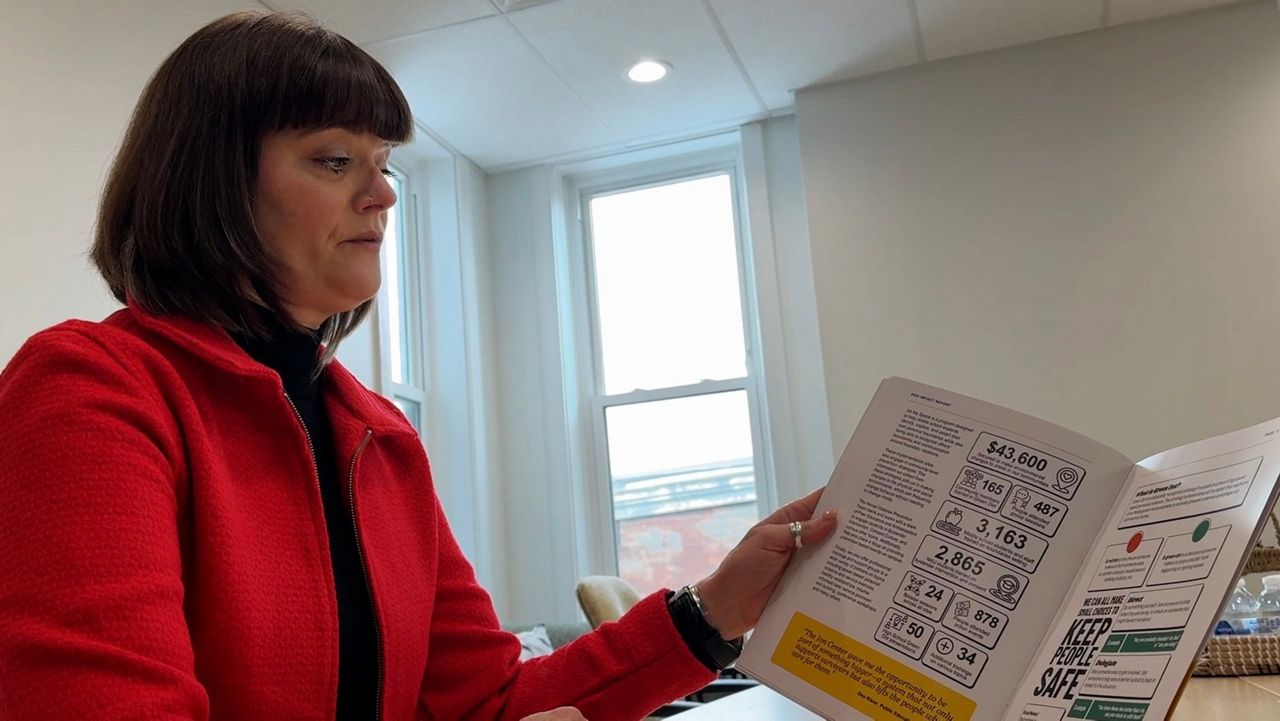HIGHLAND HEIGHTS, Ky. — A northern Kentucky nursing student is celebrating nine years of his second chance at life. That’s thanks to a decision made by a person he’ll never know.
Now he’s hoping to inspire others to save more lives and do so himself, like the nurses who cared for him when he was ill.
Trenton Faulkner has spent many hours working on lifelike human models in a classroom in Northern Kentucky University’s School of Nursing. No real lives have ever been on the line, but it’s made for stressful situations.
For someone who should have probably lost their own life, but beat the odds, most other things seem more manageable in comparison.
“It forced me at a young age to just appreciate everything you do. I was a healthy kid for so long, and you never expect to be told at 13 years old that you have 24 hours to live,” Faulkner said.
He recently celebrated his ninth “liver-versary’’, as his family calls it. He says he’s “living on overtime.”
That’s because, on Oct. 21, 2013, there was a much better chance it was going to be game over. That’s at least what Trenton’s father, Joshua Faulkner, thought when he received a phone call from his son’s surgeon.
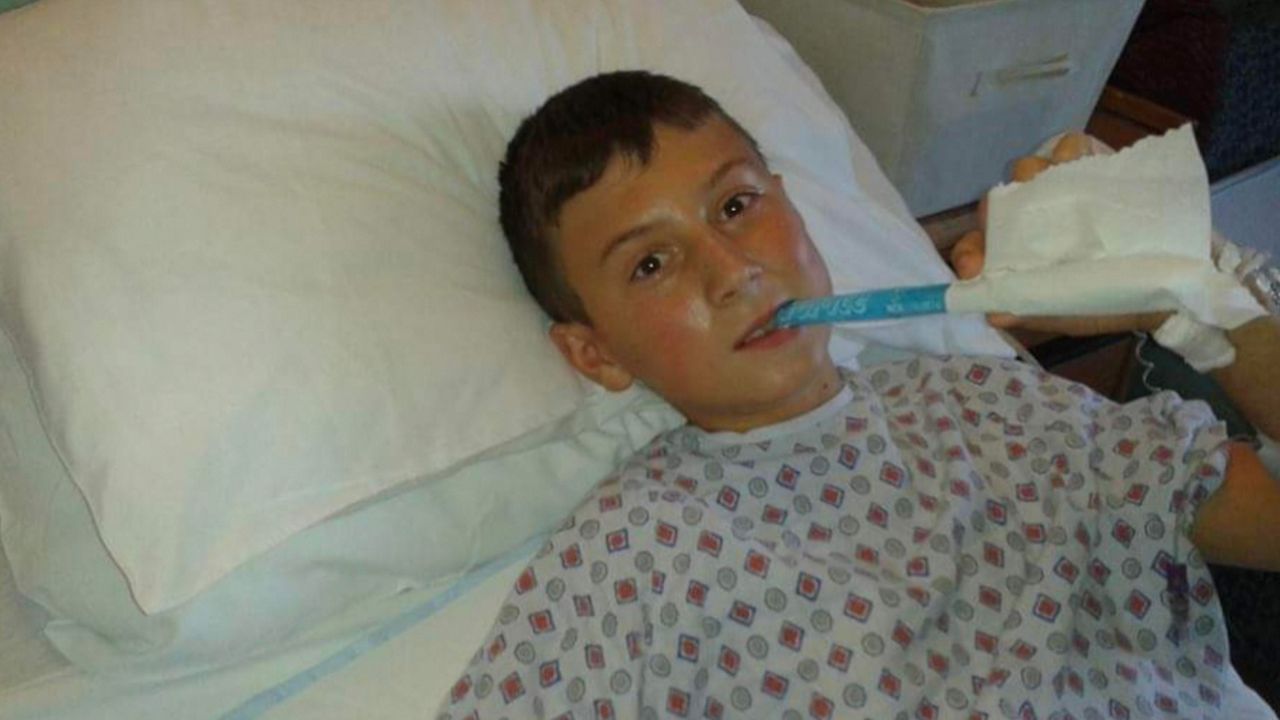
“I thought they were calling to tell me he had already died. That’s how sick he was,” he said.
Faulkner said he was a normal kid before his health issues. That was, until he started feeling some stomach pain. Though his family is from northern Kentucky, they lived in Florida at the time. People around him also started noticing he was looking yellow.
It was enough for his dad, who was a nurse himself in the military, to take Faulkner to the hospital for testing.
“I stayed there for, I think, two days. And the doctor finally came in and said, hey, your numbers are getting to the point that if you need additional care, like a transplant, we want you to be at a hospital that’s specialized for that,” Faulkner said.
His liver was failing. He was life flighted to Atlanta. There, his numbers didn’t improve.
“I remember getting there, and kind of being a little groggy, and I think I remained kind of conscious for about one more day. And the doctors came in and said, ‘Hey, we’ve been waiting to see if the liver numbers were gonna get better or worse.’ And they just stayed not good. And they said you’re gonna need a transplant in the next 24 hours, or you won’t make it,” Faulkner said. “As a 13-year-old kid, I just blanked out, and I remember holding back tears. I’m not gonna cry in front of these doctors. And then they finally left, and my dad just looked over and he said, ‘Are you okay?’ And I just remember just bawling.”
During this time, a family member created the Facebook page “Tracking Trenton,” which at one point was followed by over 2,000 people who checked in on Faulkner’s health. Many also used the platform to send prayers.
Faulkner relied heavily on his parents while he was sick, and in the years following. He said his mom was his biggest advocate.
“We called her crazy liver mom, because she would look up everything for hours on end. She could tell me what was wrong with me before the doctors could most of the time. She was just a huge support system for me,” he said.
Faulkner’s health deteriorated to where his brain stopped functioning properly. He was in acute idiopathic liver failure, and on life support.
It was too late for a live match for his transplant. In the small window he had, a liver would have to come from an organ donor who passed away.
One did. Even so, his surgeon was doubtful.
“He said, ‘If I had seen him before the liver got here, I would’ve told them to take it somewhere else. Because I don’t think this will work.’ I was too far gone,” Faulkner said.
His dad recalled the conversation as well.
“He said, ‘But it’s here, so we’re going to try.’ And that’s not what you want to hear before your kid goes into that kind of surgery. So it was a long six hours,” Joshua Faulkner said.
It was indeed a long six hours, but at the end, it appeared all the prayers had been answered.
“My liver started working immediately, and I started looking better really quick,” Faulkner said.
Overtime, it was.
“It definitely felt like a miracle, you know?” he said. “I looked around at my family. There was nothing on the TV, and I’m like, hey why aren’t we watching football? Because when my brain stopped working, it was a Sunday.”
His dad said, “That was the biggest relief I’ve ever felt in my life.”
Faulkner said, to this day, doctors still don’t know exactly what happened to his old liver.
“They don’t know what happened. They have no idea what happened. After my liver failed and they did the transplant, they took out my whole liver,” he said.
The tissue was so dead, doctors couldn’t test it. Faulkner recently had some tests done that showed he had some autoimmune markers, but not enough to confirm it was an autoimmune issue. Early on after his transplant, he would continue to ask himself: why?
“Why did I have to go through this? They said it was like winning the lottery. The chances of having acute idiopathic liver failure, which means rapid onset, and they don’t know what happened,” Faulkner said. “You kind of just start to accept it, and know you’re going to make the best out of it. And I think it’s shaped me, and changed my perspective on life for the better.”
He knows little of his new liver, only that it came from Florida from an adult male, who himself was a kidney recipient, and thus made Faulkner’s transplant high risk. He said one of the most important things to him now is to share the importance of organ donation.
“You never know who you can save, and what kind of a miracle you can have on someone’s life. Just giving them a second chance to do all these things that you never would’ve gotten to do. It really is just such a blessing to be able to do,” Faulkner said. “There is just such an organ shortage. And there are so many people on the transplant list that will unfortunately never receive the organ they need. Being able to talk about that and share, and inform people about what a gift you can give to other people, it’s just an amazing opportunity that I try to embrace and just appreciate.”
The nurses who cared for him when he thought his life might end also inspired him to become one himself. While he’s also very appreciative of his doctors, “It’s the nurses that you see every day for hours, and they just make such an impact,” Faulkner said. “It just really opened my eyes that nurses have this huge impact on patients. And if I want to have that type of impact on people, nursing is probably the way to go.”
Joshua Faulkner is a proud father.
“It’s just a blessing. We’re so thankful for every day that we’ve had with him.”“And that’s what I’m so proud of, is that he really does just want to help people. He knows what it’s like to be there, to be vulnerable, to be scared. To be able to care for people the way he was cared for is an honor,” his dad said. “It’s just a blessing. We’re so thankful for every day that we’ve had with him.”
Sadly, Faulkner had to deal with more tragedy a few years ago. His mother passed away from an accidental fentanyl overdose. Faulkner said he hates the assumptions people make about his mother when the only thing they know about her is how she died, as she was “one of the best people” he had ever known.
“Losing my mom was definitely difficult. It was very, very hard for my family. It was just so unexpected. Going back for my first liver biopsy, which she always went with me, I just remember that was so hard to do without her,” he said. “I have memories of my mom that I will just never forget, because we spent so much quality time together.”
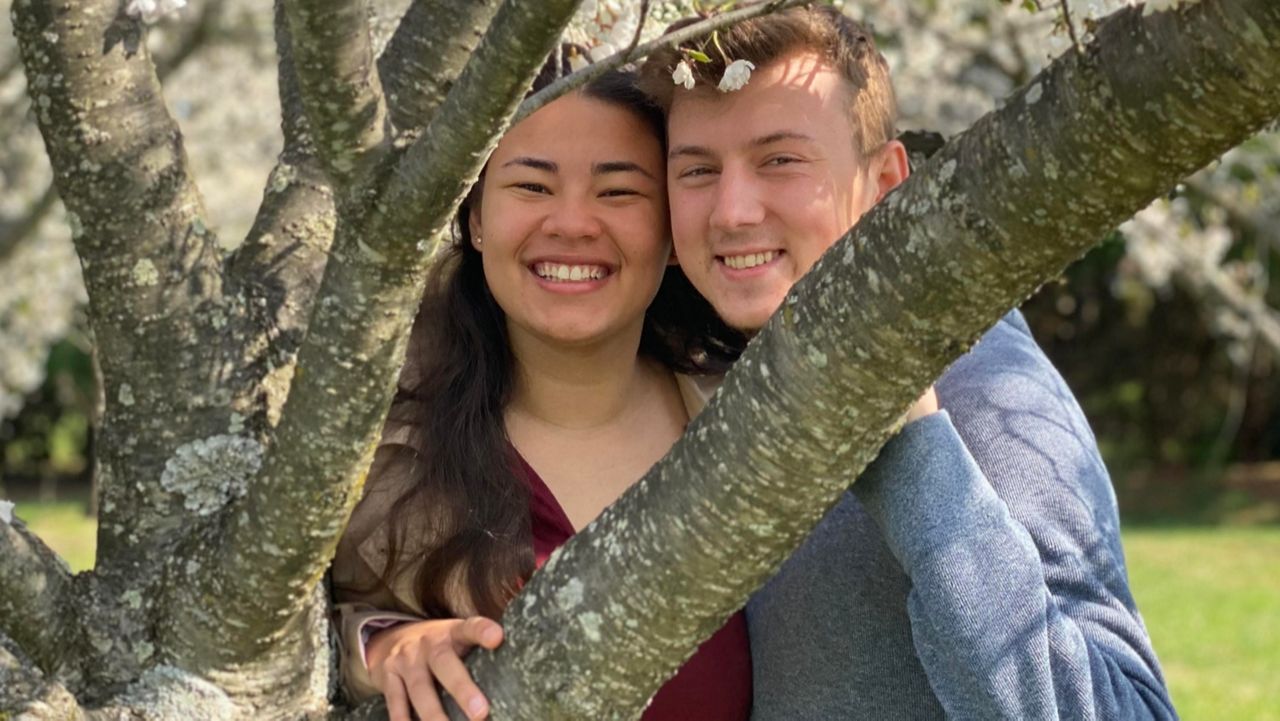
Joshua Faulkner still occasionally updates the Tracking Trenton page to let people know how his son is doing. At 23 years old, Faulkner is engaged, and lives with his fiance in La Grange.
With a year left in school, he said he plans to be an Intensive Care Unit nurse, then get his CRNA (Certified Registered Nurse Anesthetists) to become a nursing assistant. While his future appears bright, Faulkner said he’s learned not to take a single day for granted.
As for what happens next with his liver, Faulkner said there has been a lot of research done on artificial livers in recent years. The old accepted standard for liver transplants was that they would last for 20 years. As medicine has improved, recipients are going for much longer before needing another transplant, Faulkner said.







